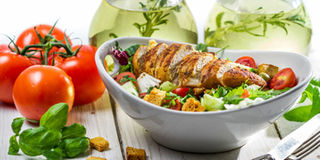Prime
Gout diet dos and don’ts

The foods you eat can have a direct impact on gout flares. PHOTO | COURTESY
What you need to know:
- The basic meal plan for a gout patient comprises plenty of fruits, vegetables and whole grains and other foods that are helpful in removing uric acid from the blood more efficiently.
Gout is a type of arthritis characterised by recurrent attacks of a red, tender, hot and swollen joint, caused by accumulation of uric acid. Certain foods trigger gout symptoms by increasing the levels of uric acid in the blood.
Although gout can be treated medically, lifestyle changes are largely important in keeping it under control. These may include diet modification, managing weight and quitting smoking.
According to Amanda Twebaze, a nutritionist, the foods you eat can have a direct impact on gout flares. During a gout attack, modifying your diet may help decrease the length of the flare. Foods said to trigger a gout attack include alcohol, yeast products such as bread, fast foods and those high in fructose; a fruit sugar, organ meats, mackerel, sardines and shellfish, among others.
Calcium
While calcium cannot help to control or prevent flare-ups of gout, gout patients need it in controlled amounts. Too much calcium can cause the formation of uric acid crystals, while too little calcium can cause osteoporosis and increased instances of fractures.
Calcium is the main mineral contained in milk but once in excess, it brings about an imbalance in the magnesium and potassium minerals that cause bone complications such as bone loss and arthritis.
“Milk is a natural source of high-quality protein, necessary for preserving or increasing lean muscle mass. Taking milk daily provides protein which can increase lactic acid production which requires the use of more calcium from bones to neutralise the acids. This often is detrimental to bone health,” says Twebaze.
If you suffer from gout, there are several things you can do to improve your symptoms:
● Rest and elevate the affected joint.
● Apply ice to the joint for 20 minutes at a time.
● Take over-the-counter pain relievers such as ibuprofen or aspirin.
Talk to your doctor about the prescription medication if your gout symptoms are more recurrent or do not improve with the above practices.
Preventing gout
Gout is primarily caused by an accumulation of uric acid in the blood. Uric acid is a metabolic product from the breakdown of purine and it is a normal component of urine. However, if it is in large amounts, it can lead to gout and is associated with other medical conditions such as diabetes and the common kidney stones.
There are also things that you can do to prevent gout from occurring. These include limiting your alcohol intake, avoiding eating foods that are high in purines such as poultry and organ meats, maintaining a healthy weight, drinking plenty of water, and eating more fruits and vegetables.
One should also eat lean protein sources such as fish, chicken, and turkey, low-fat dairy products, whole grains, plant oils such as avocado, beans and lentils, water and coffee as well as nuts such as almonds and peanuts.
If untreated, Twebaze says, gout can bring about complications such as uric acid crystals being deposited under the skin in nodules. This can be present in fingers, hands, feet, elbows or Achilles, among others. These may be painless but if they occur multiple times, they can damage joints or worse still, get deposited in the kidney causing kidney stones.
Do’s
● Maintaining a healthy body weight is one of the most important factors in managing gout.
●Keep your joints mobile by doing some moderate exercises recommended by a physiotherapist.
●An ice pack can be applied to the sore joint for 15-20 minutes.
●Drink around 1.5-2.5 litres of water per day, to avoid formation of kidney stones.




